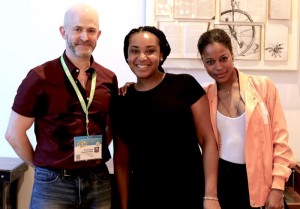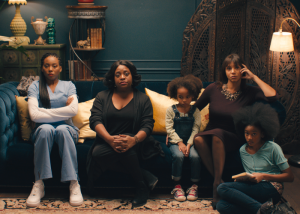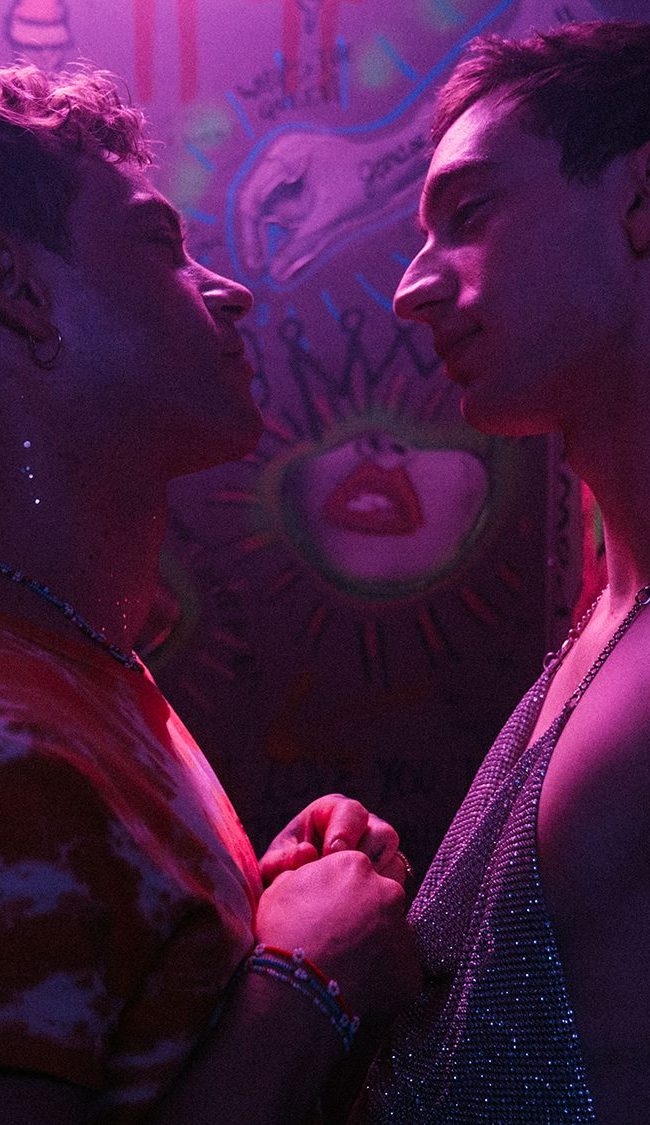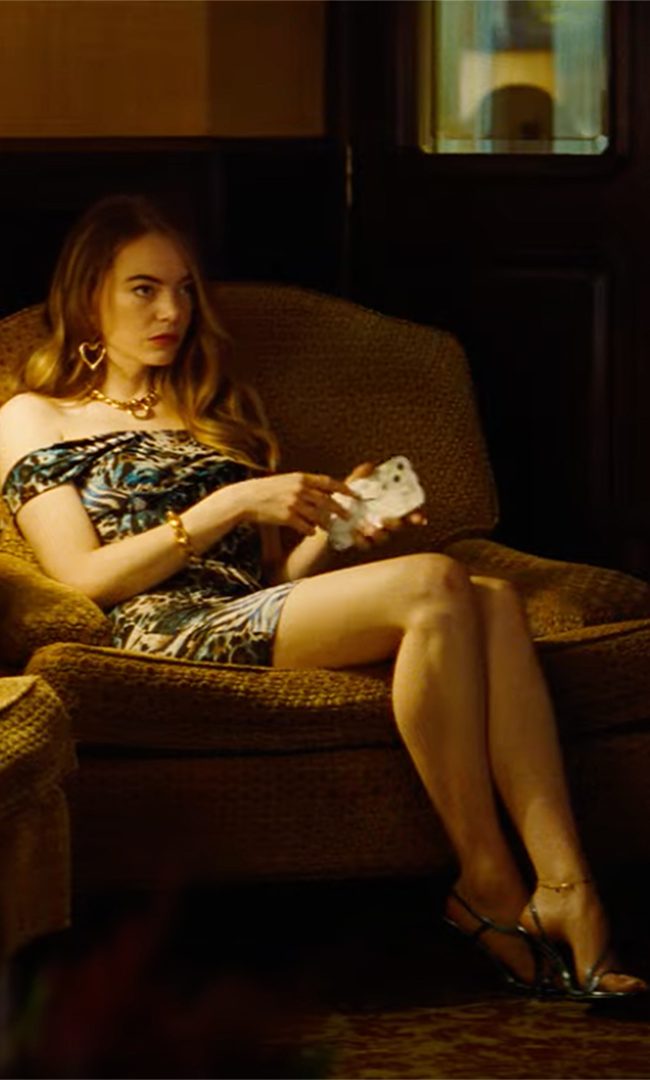A Conversation with Stella Meghie & Taylour Paige (JEAN OF THE JONESES)
I met with director Stella Meghie and Taylour Paige, of Jean of the Joneses, on Monday, March 14, 2016, to discuss their collaboration on the film. Here is a condensed digest of that conversation.
– Christopher Llewellyn Reed
Hammer to Nail: I want to ask, first, Stella, about the transition from your short film, Recovering Undercover Over Lover, to feature filmmaking. You won the Tony Cox Screenwriting Award for this script.
SM: Yes.
HtN: Can you discuss your process from that point forward, from the winning of the award to getting the film made?
SM: So I won the Tony Cox Award four years ago, which was so exciting, and it was really like a moment where I was like, I’m going to get this made, eventually, you know? And I ended up doing a few more fellowships after that, like the Tribeca Film Institute, which is the last one I did, but it was about just having people read it … it was just one of those things where it’s being read and you’re hoping that people will jump on board and help get it financed, you know, and it wasn’t happening and I ended up kind of turning to TV and doing some TV things and being in L.A. and selling a few things there. Which turned around and really helped Jean; that was kind of the turning point, to be honest. When other things were being sold, I was sort of an approved writer, and people started looking at the script a little differently and it just, I don’t know, it just came to its time, like four years after Tony Cox. And all those things, like Tony Cox and Tribeca, kind of give it a stamp and push people to want to get involved in it. And so that’s what happened. And I ended up coming back from L.A. and…I’m Canadian, so Telefilm Canada, at that point, stepped in and gave the first bit of funding and then we were off to the races.
HtN: I’m convinced that, for filmmakers, it’s a really good thing to be Canadian…
SM: (laughs) It can be, yeah!
HtN: It seems the state sometimes supports the arts a little more than in the United States…so Taylour, you’ve done some TV, and are a regular on Hit the Floor, but had you done any films before?
TP: This was my first film.
HtN: So this was your first feature. How did the script come your way?
TP: My agent sent it in and I read it, and I’m like, I want to play her. Please. Let’s make this happen. And I auditioned for it, and I ate these really bad raspberries and was sick the day of, and thought, there’s no way I’m getting called back for this. She thought I was hungover and was like, quit playing and come back on Monday.
HtN: Although you being hung over might have fit the state that Jean is in, in the film.
TP: (laughs) Maybe! But I promise I wasn’t! We don’t do that the day before an audition. (laughs) Maybe afterwards, when I get the role and I celebrate…
SM: And now that I know her, she, like, rarely drinks. So…
HtN: So it was all thanks to the raspberries…
TP: Those damn raspberries. Yeah.
HtN: So what did you see in Taylour that you thought was perfect for Jean?
SM: She was just free. She just had, like, a rawness to her and an honesty and just…like, Jean just kind of says whatever she wants, all the time. And Taylour has that filter-free, open-book thing about her and that same kind of ability to self-deprecate…that same thing that Jean does. As soon as she opened her mouth, when she said something, it just sounded like how I had heard it in my head, and, you know, I had never seen any of Taylour’s other work, really, but she seemed to embody the character in the audition, so…
HtN: So how did you pick the rest of your cast?
SM: Just by love…(laughs)…I had a casting director, Ashley Ingram, and worked with Billy Hopkins in New York, who was great about bring certain people to my attention, like Mamoudou [Athie], who played Ray, and I was just lucky. It was like people that I really wanted. Like, would Sherri [Shepherd] do it? And then Sherri said yes. Would Erica [Ash] do it? And Erica said yes. Would Gloria [Reuben] do it? And Gloria said yes! So I just kind of offered to them and they were available. And then Ashley, our casting director, brought Michelle Hurst to my attention, too, and I was just, like, wow, hadn’t thought of her. And she’d had this…you know, she’d been on Orange Is the New Black.
HtN: Yes, I recognized her as soon as I saw her!
SM: Yes! And then she’d had this huge accident, and almost died!
HtN: Wow! I did not know that …
SM: Yeah…so she had this accident, and it’s funny, because my Aunt Jean, who was a big inspiration in my life, she had a huge accident and almost died. And then I put them together, to do dialect stuff, to help her with her Jamaican accent, and they just…
TP: …clicked!
SM: They just clicked! They had so much in common, you know, having both been through the fire to stay alive.
HtN: So, Taylour, your on-screen rapport with Mamoudou is lovely, in a sort of antagonistic way…
TP: (laughs) Thank you
HtN: I’m wondering, did you spend a lot of time working with him to get that easy rapport?
TP: You know what’s really lucky about that? I met him the day before we shot, the first scene we shot with him was on the mattress, right? At that house? I met him the day before. But he’s so lovely…I always…he went to Yale, so was kind of fan-girling, like, oh my God, he went to Yale, Meryl [Streep] went there, you know, sort of just eating up his experience, and he’s just super downplaying, he’s such a humble artist, so great.
SM: He’s so talented
TP: Very talented. He just made it, it was comfortable, you know? We’re both early in our careers and just wanted to bring our natural selves to this. It’s cool because, in reality, I’m a little more like “Mamoudou!” and he’s a little more shy. Not shy, but…
SM: He’s reserved.
TP: He’s reserved!
HtN: That fits the part, too
SM/TP (together): Yeah!
HtN: Because his character has that sort of natural reserve. What do you think attracts him to your character in the film?
TP: Well he says that line, “you’re kind of cute, like an Eartha Kitt,” and it’s sort of, like, thanks, kind of…
HtN: But you keep on pushing him away, and he keeps on…
SM: Mamoudou would say, why do I like this girl?
TP: Yeah!
SM: You know, like, I should be mad at her, and I’m like, you just like this girl.
TP: He’s smart enough to know that there are layers to this façade she puts up, like she’s not emotive, but there is a lot under there
HtN: Right.
TP: And maybe also the normalcy, in our day and age, of chasing someone. You know, it kind of makes it interesting, when a girl is like, whatever, about it. Even though she isn’t really whatever, she’s just really good at acting like that.
HtN: So it seems to me – among many other themes – that your film is partly about the immigrant experience and assimilation, on some level. Is there a special meaning, for you, in Jean’s journey from Jeremiah, the white boyfriend, who, as the mother says, is there to “lighten the line,” back to Ray? Is that just by the by, or is there something deeper?
SM: You know, I think it’s maybe by the by, in a way, though I could see how it might be taken the other way, too. I mean like, her dating him and all the jokes around him, like “lightening the line,” or her “Ken Barbie boyfriend,” definitely speak to what it’s like to, in some sense, assimilate, or just be in a multi-cultural world. You know, I grew up in Toronto, where you date everybody, so maybe that relationship spoke to, like, we’re American now, you know, we date American boys, whatever their color. But I think her dating Ray was more like a journey just back to herself, not necessarily culturally, but just like being with the right guy, who makes her feel comfortable, who sees her…
TP: Yes!
SM:…whom she sees, and they’re together because of love.
TP: I remember reading the script and Jeremiah’s last name is Rosenberg, right?
SM: Yeah.
TP: And I just remember, I think it was my agent, and they thought that Jeremiah was black
SM: Yeah, everybody…
TP: Everybody was confused
SM: I know! When I was, like, who are we going to get for Jeremiah, and I said I really wanted François Arnaud [who plays Jeremiah in the film], and they’re, like…François Arnaud?!?!? And it was like this consensus that nobody knew that.
TP: …that he was Jewish…
SM: (laughs) Everyone thought he was black, and I was, like, but his name is Rosenberg. He’s the only one that you would know specifically by his name, in the script, that he’s not, like, any one culture, or that he is one specific culture.
TP: But that gave me a lot of insight into Jean, just what she’s been doing in the last few years of her life. But I also thought that it gave…she didn’t just start to date Ray because…well, she just is this elusive person that doesn’t really give a s*** about color.
HtN: And certainly another part of the film – an even stronger theme – is this idea of failed relationships and of men disappointing women, right?
SM/TP (together): Right!
HtN: And so Ray presents the opposite of that. Which is why you push him away, at first, because he’s a completely different kind of man.
TP: It’s like, wait, I don’t know good things that work out, I only know dysfunction…(laughs).
HtN: Yeah. Exactly. Well, thank you for this great conversation. I wish you all the best with the film!
– Christopher Llewellyn Reed (@ChrisReedFilm)













